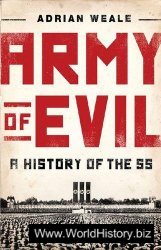Pozieres see somme, battle of the.
Prasca, Gen Sebastiano Visconti.
Italian c-in-c Albania, 1939-40: commanded Italian invasion of Greece, October 1940.
Precision bombing see bombing.
Precision Guided Munitions (PGM). General term for “smart” munitions that are terminally guided to their targets with a high degree of accuracy. These include bombs, shells and missiles that home on reflected laser energy and missiles, and bombs that home on a designated point on a television picture obtained by a camera in the nose of the weapon. The term also covers munitions, sometimes small submunitions carried in dispensers, that home on targets such as tanks by sensing their infrared emissions or by using millimetre wavelength radar.
Pre-emptive strike. A strike carried out by one side in anticipation of the other’s launching an attack.
Pricolo, Gen Francesco. Italian. Chief of Air Staff when Italy declared war in 1940.
Pridham-Wippell, Adm Sir Henry (1885-1952). Br. Second-in-Command Mediterranean Fleet and Flag Officer Light Forces to May 1941; Flag Officer 1st Battle Squadron; temporarily c-in-c Mediterranean Fleet, April—May
1942.
Prien, Commander Gunther
(1908-41). Ger. Submarine commander. In (7-47, penetrated the anchorage at Scapa Flow and sank the battleship Royal Oak, night of October 13—14 1939. Subsequently sank large total of merchant ships until killed when U-47 was herself destroyed on March 8 1941 by hms Wolverine.
Prince of Wales. British battleship. King George V class; completed 1941; 35,000 tons, 10 x 14in guns. Engaged Bismarck in the Denmark Straits, May 1941. Badly damaged, and with malfunctioning armament, she got an important hit in return before turning away. Sunk (with hms Repulse) by Japanese air attack off Malaya, December 10 1941.
Princeton. US aircraft carrier. Independence class light carrier; completed 1943. During the Battle of Leyte Gulf, she was hit by a dive-bomber. Fires and explosions took control and sank this ship as well as badly damaging the cruiser Birmingham and killing 385 of her crew while she was alongside, helping to fight the fires.
Prinz Eugen. German heavy cruiser. Armament 8 x 8in guns. Saw great deal of service: sustained torpedo damage in Norwegian campaign (1940); survived Bismarck’s Atlantic sortie (1941), escaping to Brest; in 1942 was in Channel Dash. Surrendered at Copenhagen (1945). Expended in atomic bomb test at Bikini (1947).
Prisoners of War (Korea). The
)'ow issue proved the most contentious of the Korean War. Although neither the dprk nor the US had ratified the Geneva Convention of 1949, both announced that they would apply its provisions. The Chinese did not accept the Geneva rules until July 1952. In fact neither side adhered strictly to the Convention and both treated pows as political pawns. While the Chinese tried to re-educate their prisoners, the Americans attempted to win communist pows for democracy. The pows became an issue at the truce talks in 1952 when the unc proposed the principle of non-forcible repatriation under which no pow would be compelled to return home. The communists insisted on Article 118 of the Geneva Convention which called for the automatic repatriation of all pows at the end of hostilities. This question deadlocked the truce talks for over a year and was only finally resolved by handing over those pows refusing repatriation to a Neutral Nations Repatriation Commission. CM. See also koje island prison camp; neutral nations repatriation COMMISSION.
Prittwitz, Gen Max von
(1848-1917). Ger. A favourite of the Kaiser; appointed Commander of German Eighth Army (East Prussia) in 1914. Dismissed after ordering general withdrawal to line of Vistula after Battle of Gum-binnen. See also tannenberg and
THE MASURIAN LAKES, BATTLES OF.
Propaganda. An important arm of warfare, often neglected by commanders born into the old officer class, who affect to despise journalists and broadcasters. During this century, propaganda’s main vehicles have been, in turn, newspapers, radio and television; books, pamphlets, leaflets, posters, plays, films, and megaphones for shouting slogans have also been useful from time to time. Propaganda has two main military objects: to maintain the morale of one’s own side, and to sap that of enemies, actual or potental. It has no necessary connection with truth; save that, when it is known and provable to be truthful, it is all the more effective.
The build-up of the Dreadnought fleet, 1906-15, was much helped by newspaper propaganda, originally orchestrated by Fisher. One of the grounds of Anglo-German misunderstanding was that the German press was entirely under government control, and the Germans believed, wrongly, that the same was true of the press in England. Early in the 1914-18 war, newspaper reports — American as well as British and French - indicated that German troops advancing across Belgium had behaved with particular atrocity towards civilians; most of these stories turned out to be baseless on investigation, but they had tremendous effect in stiffening Allied will to fight. The Russian Bolsheviks, who siezed power in November 1917, relied largely on propaganda to secure their victory in the civil war that followed, and have conducted sustained campaigns against capitalism and imperialism ever since, with varying results. Both Mussolini’s Italy and Hitler’s Germany used propaganda extensively, in peace and in war, to assure their own citizens of their regimes’ greatness and to intimidate their opponents. Goeb-bels showed particular skill at these tasks; his encouragement was as valuable as Himmler’s policy of terror in holding Nazi Germany together for its last disastrous year. Churchill’s wartime broadcasts did marvels for sustaining the British against Nazi attack, and encouraged the occupied peoples of Europe to hope; as did, in particular, Queen Wilhel-mina’s broadcasts to the Nether-




 World History
World History![Stalingrad: The Most Vicious Battle of the War [History of the Second World War 38]](https://www.worldhistory.biz/uploads/posts/2015-05/1432581864_1425486471_part-38.jpeg)









